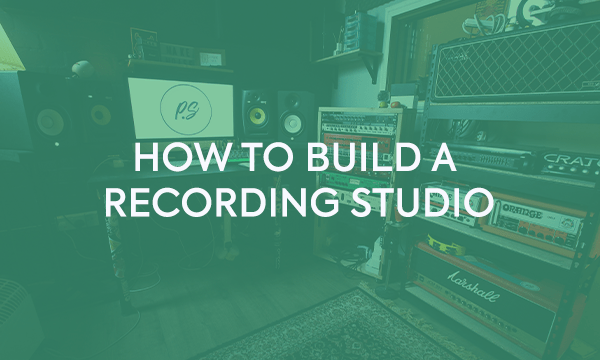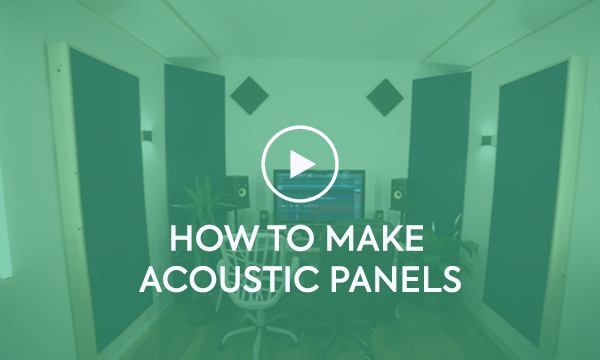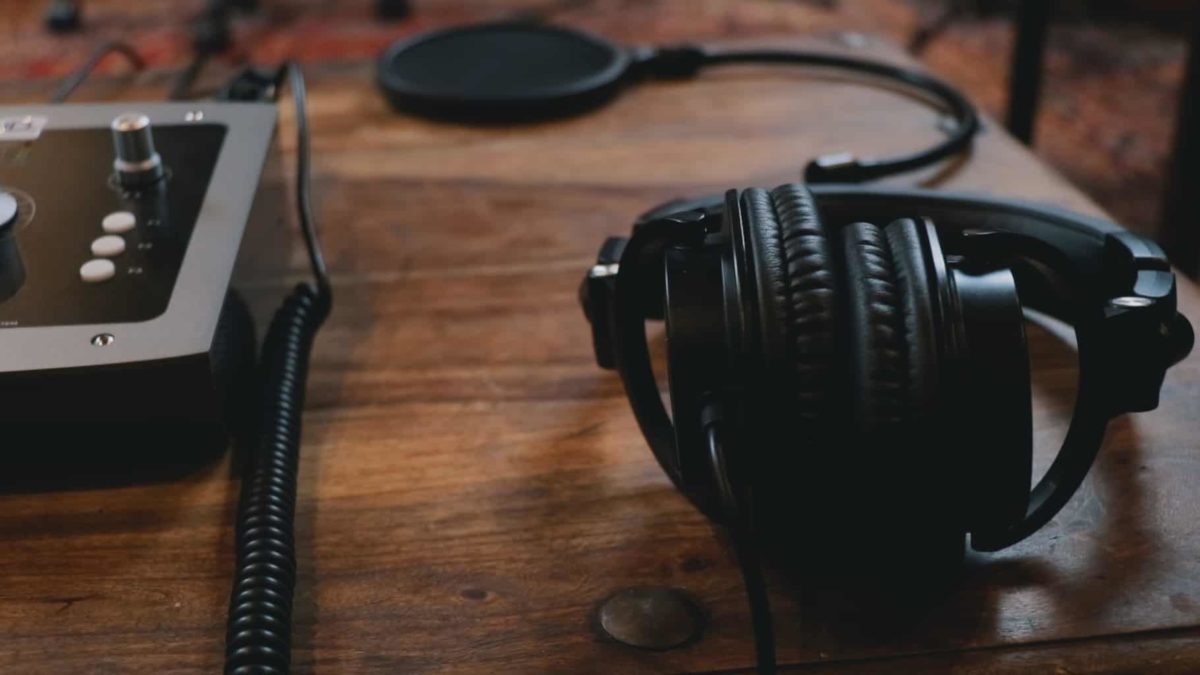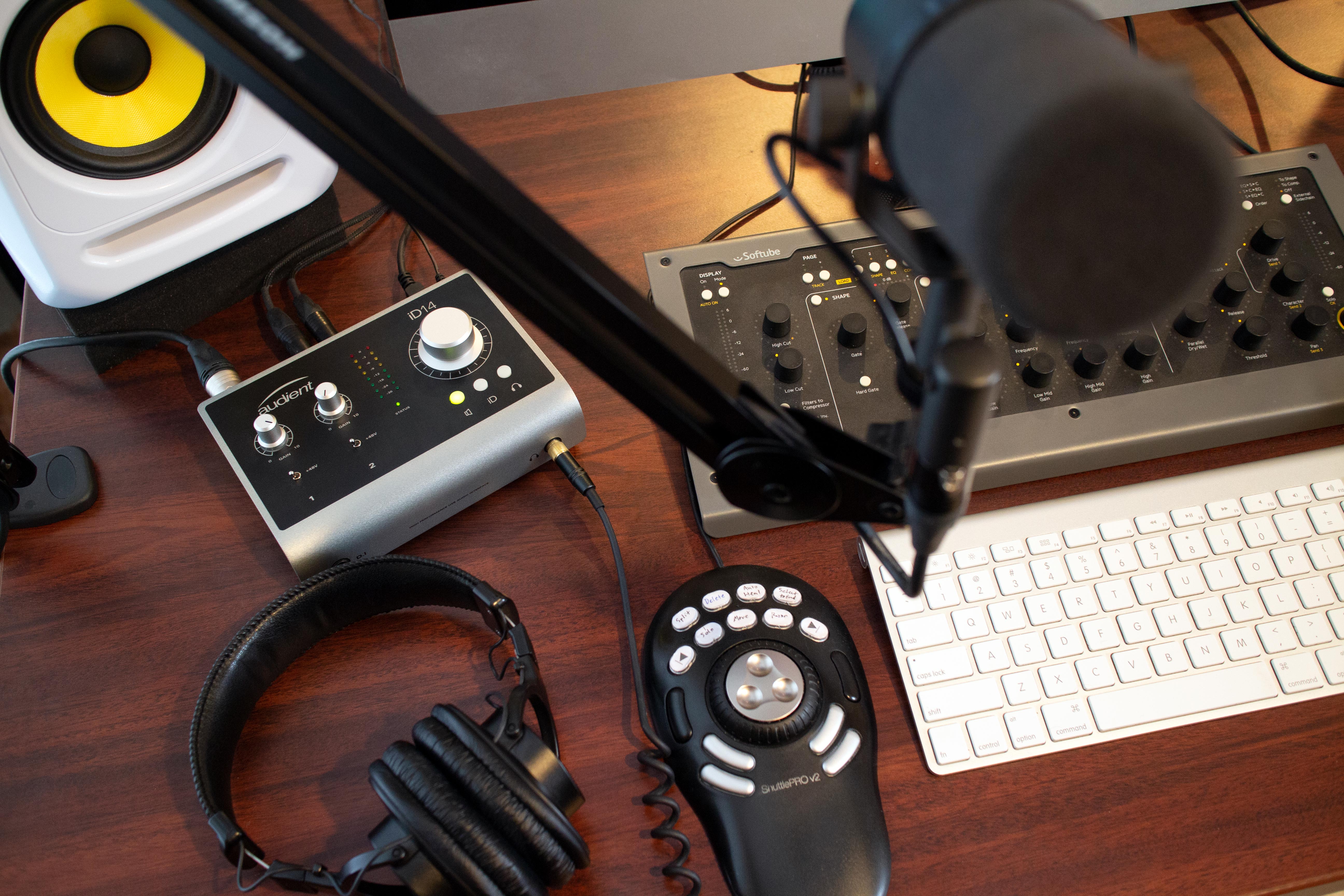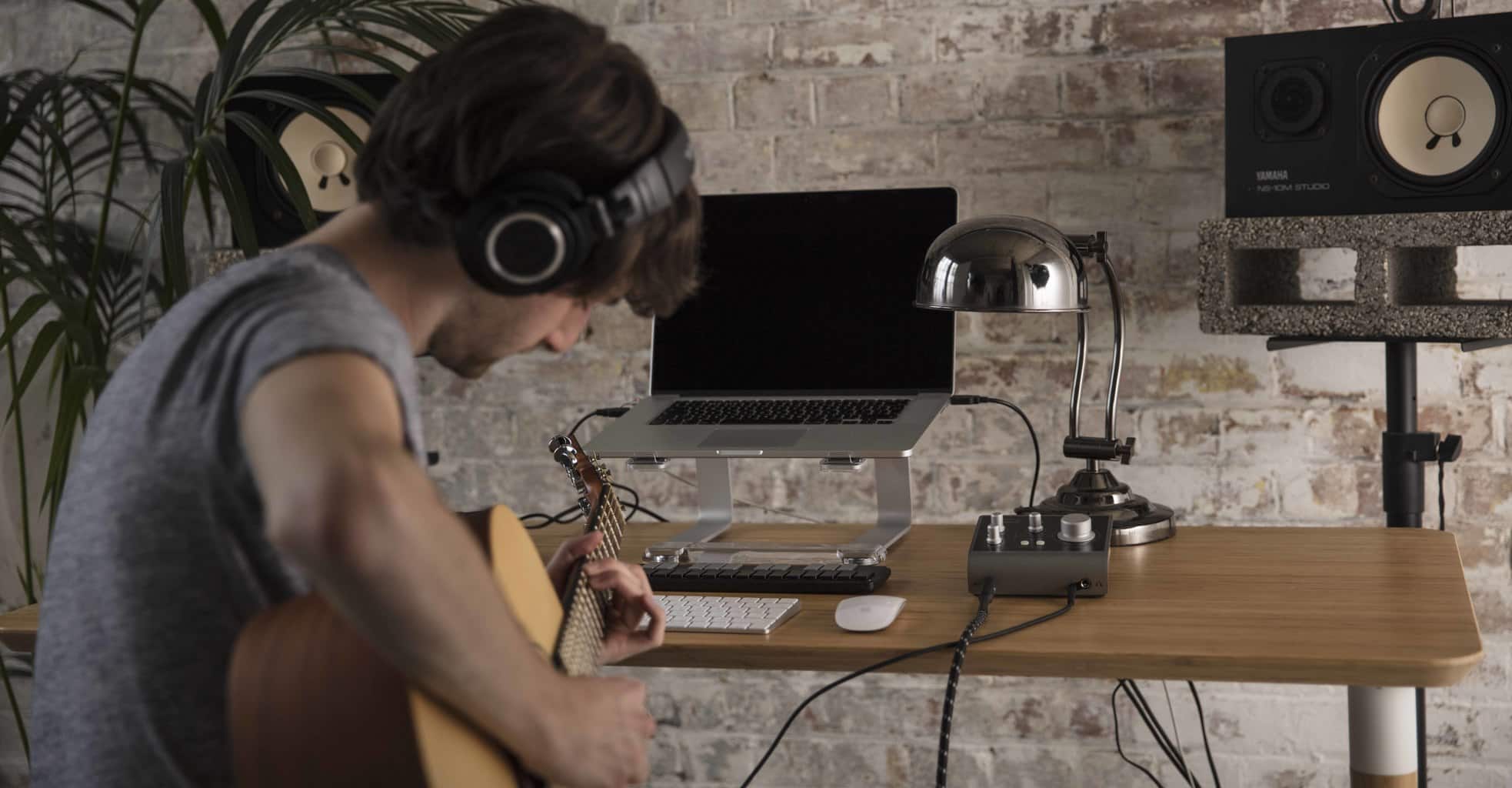Musician, Producer and Author Bobby Owsinski talks you through how to get your studio sounding great without spending a penny. Filmed and recorded at Nimbus School of Recording & Media.
1. Moving Your Speakers
Moving your speaker 12″-18″ away is going to improve the bass response in your room. When the speakers are close to the wall, the low frequencies are more likely to create comb filtering which will not be beneficial when mixing. Moving them away from the wall will tighten up your bass response.
2. Moving Your Desk
Make sure that when setting up your studio that your desk and listening position is in the centre of the room. This way you’re going to be hearing the most equal sound.
Even if you have no acoustic treatment, at least any reflections from the walls will be coming back to your ears at the same time! (If you don’t have any acoustic treatment and want to make some, check out our tutorial here.)
3. Set Up Length-Wise
Setting up down the length of the room is one of the most important things to consider when setting up your listening position. You really want to avoid square rooms as having a square room will likely mean room modes. Room modes are very very bad.
4. Decouple Your Monitors
Grab some acoustic foam (or some leftover Rockwool) and place them underneath your speakers. You want to minimize the vibration which is running through your desk and only hear the direct sound that’s coming out of your monitors.
5. Check The Setting On The Monitors
It might sound obvious but make sure the settings on your monitors are set exactly the same! You want to be hearing the exact same thing out of each monitor – you only have to do this once, so make sure you do it right!
We also recommend setting the volumes on each monitor to full. It’s hard getting the monitors to match exactly if you don’t have stepped knobs, so setting them both at full gets rid of the guess work.
